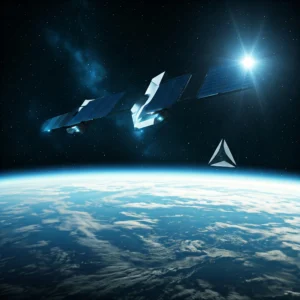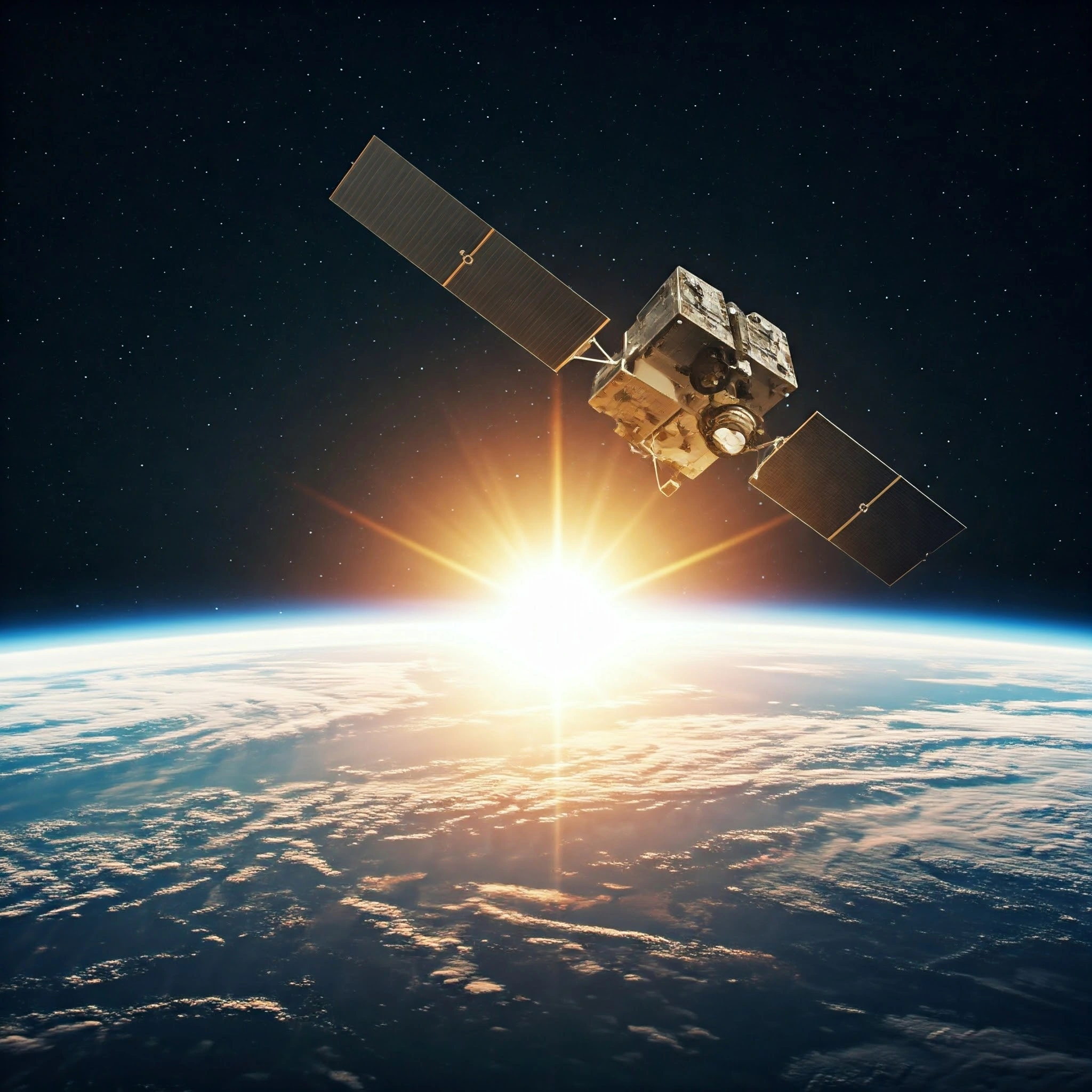Pixxel Space is a promising Indian aerospace startup that has quickly risen to prominence in the space sector, specializing in Earth observation using a constellation of high-resolution satellites. The company’s mission is to provide critical insights and real-time data to a variety of industries, including agriculture, climate monitoring, disaster management, and urban planning. With an ambitious vision and a growing set of advanced technologies, Pixxel is on track to become one of the most innovative players in the global satellite industry.
The Genesis of Pixxel Space
Founded in 2019 by Awais Ahmed, Kshitij Khandelwal, and Rishabh Chaturvedi, Pixxel was born out of the growing need for high-quality, real-time Earth observation data. The three co-founders, hailing from diverse backgrounds, combined their expertise in space technology, artificial intelligence, and business development to create a company that could address the increasing demand for accurate satellite imagery. The vision behind Pixxel is to democratize access to space-based data and use it to solve some of the world’s most pressing challenges.

Revolutionary Technology: Satellites and Earth Observation
Pixxel’s main offering is its constellation of small, high-resolution satellites, designed to capture high-quality images of the Earth in various spectral bands. These satellites can provide insights into everything from agricultural health to the state of urban development, offering a level of precision that is critical for decision-making in multiple sectors.
Unlike traditional satellites, which often focus on a narrow set of applications, Pixxel’s technology aims to bring cutting-edge spectral imaging capabilities to a broad range of industries. The company’s satellites are equipped with hyperspectral imaging sensors, enabling them to capture a wide range of electromagnetic wavelengths. This technology allows Pixxel to deliver more detailed and accurate data compared to traditional imaging systems, making it possible to detect subtle changes on the Earth’s surface, even in remote and difficult-to-reach areas.
In 2021, Pixxel successfully launched its first test satellite, named “Pixxel 1,” marking a significant milestone in its journey. The satellite was launched aboard a SpaceX Falcon 9 rocket as part of a rideshare mission. This test mission was a key step in proving the capabilities of Pixxel’s technology and the company’s ability to deploy a functional satellite into orbit.
Following the success of Pixxel 1, the company has been working on deploying a constellation of satellites that will work in tandem to provide continuous, global coverage. Additionally, these satellites will offer customers real-time, actionable insights that can aid in various sectors such as agriculture, natural resource management, environmental monitoring, and more.
Applications of Pixxel’s Technology
Pixxel’s hyperspectral imaging technology is highly versatile and can be used for a wide array of applications. Some of the primary sectors benefiting from the company’s offerings include:
- Agriculture: By monitoring crop health and detecting early signs of disease, pests, or nutrient deficiencies, Pixxel’s satellites help farmers optimize their crop yields. Additionally, its technology aids in precision farming, allowing for the more efficient use of water and fertilizers.
- Disaster Management: In the event of natural disasters such as floods, wildfires, or earthquakes, Pixxel’s satellites can provide real-time images and data to help emergency responders assess damage, track the spread of disasters, and plan relief efforts.
- Environmental Monitoring: With increasing concern about climate change, Pixxel’s satellites can monitor various environmental parameters, such as air quality, deforestation, and the health of marine ecosystems. This helps governments and organizations make informed decisions about conservation and sustainability.
- Urban Planning and Infrastructure: Pixxel’s high-resolution imaging allows for precise monitoring of urban growth, enabling city planners to better understand urban sprawl and plan for future infrastructure needs.
- Natural Resource Management: Pixxel’s technology helps industries involved in mining, oil and gas exploration, and forestry monitor and manage their operations. The ability to track changes in landscapes over time is crucial for sustainable resource extraction.
Funding & Backing
Since its inception, Pixxel Space has attracted significant investment from both domestic and international investors, allowing it to rapidly scale its operations and develop its technology. The company has raised several rounds of funding, which have been crucial in supporting its ambitious goals. One of the most significant endorsements for Pixxel came in the form of a partnership with Google, which provided funding, technology support space-based data analytics.
In 2021, Pixxel raised $5 million in a seed funding round led by Blume Ventures, with participation from Google and Hustle Fund. The funding was used to develop and launch Pixxel 1 and to expand its satellite capabilities. This round marked the beginning of Pixxel’s journey toward establishing a constellation of satellites, which is now at the core of its business model.
In 2022, Pixxel raised additional funding in a Series A round led by Microsoft’s M12 Venture Fund. The Series A round, which raised around $25 million, provided the company with the resources it needed to expand its research and development operations and scale its satellite network. With strong financial backing, Pixxel is now well-positioned to expand its presence in the global market.
Timeline of Key Milestones and Funding for Pixxel Space
| Rank | Milestone / Funding | Year | Significance |
|---|---|---|---|
| 1 | Launch of Pixxel 1 Satellite | 2021 | Successfully launched its first test satellite aboard SpaceX’s Falcon 9, showcasing the ability to deploy Earth observation satellites into orbit. |
| 2 | Seed Funding Round | 2021 | Pixxel raised $5 million in seed funding led by Blume Ventures, with participation from Google and Hustle Fund, enabling the company to build and launch its first satellite. |
| 3 | Partnership with Google | 2021 | Secured strategic partnership with Google, which provided critical funding and technology support to Pixxel, helping scale its satellite capabilities. |
| 4 | Development of Hyperspectral Imaging Technology | 2022 | Developed advanced hyperspectral sensors capable of capturing high-resolution Earth observation data, supporting industries such as agriculture, urban planning, and climate monitoring. |
| 5 | Series A Funding Round | 2022 | Pixxel raised $25 million in Series A funding, led by Microsoft’s M12 Venture Fund, helping the company accelerate its technology and expand its satellite constellation. |
| 6 | First Constellation Deployment Plans | 2023 | Announced plans for deploying a full constellation of small satellites to offer near-global Earth observation coverage and continuous data availability. |
| 7 | Global Expansion and New Partnerships | 2024 (Planned) | Intends to expand its global footprint and forge new partnerships with government agencies, space tech companies, and research organizations to enhance its satellite services. |

